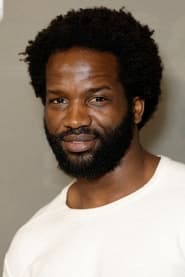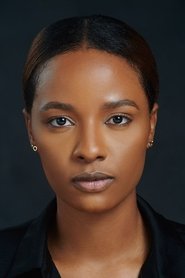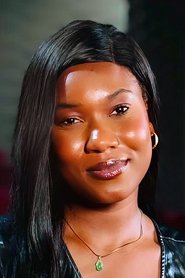
My Father's Shadow (2025)
1h 33m | PG-13
Kid brothers Remi and Akin get to spend a gift of a day with their estranged father Folarin. They go on a voyage into Lagos observing the colossal city for the first time and the hoops their father must deal with to provide. All this happens in the backdrop of a huge 1993 presidential election result which calls into question his ability to get them home.
Director: Akinola Davies Jr.
Studio: BBC Film
Genre: Drama
Video: 720p
Cast

Ṣọpẹ́ Dìrísù
as Folarin

Efon Wini
as Bola

Godwin Egbo
as Akinola

Chibuike Marvellous Egbo
as Olaremi

Tosin Adeyemi
as Aunty Seyi

Adesina McCoy Babalola
as Gbemi
Reviews
Fathers and sons often have complicated relationships. In many instances, boys often don’t know their dads as well as they would like (or at all), leaving them with many unanswered questions about these individuals whom they dutifully but frequently inexplicably call “parent.” So it’s entirely understandable how the curious would jump at the chance to get to know their fathers better when such opportunities present themselves. So it is for two young boys, Aki (Godwin Egbo) and Remi (Chibuike Marvellous Egbo), who are invited to join their father, Folarin (aka Kapo) (Sope Dirisu), on a day trip from their remote village to Lagos, Nigeria’s largest city, where their dad works. As a diligent head of the household, he often spends months at a time in Lagos without seeing his sons or their mother, Bola (Efon Wini), a noble but significant practice that leaves a sizable gap in the character of the family’s home life. Because of Folarin’s many extended absences, his sons know little about him other than his apparently profound love for them and his unwavering commitment to supporting them and his wife. But there’s more to this lack of awareness than just his physical absence; Folarin is, by his nature, a man of mystery in many ways, and Aki and Remi know virtually nothing about this aspect of their father’s life. This includes his past in Lagos, his courtship and relationship with Bola, and, perhaps most notably, his somewhat outspoken political outlook, a critical element of his background in light of the story’s backdrop, the highly controversial 1993 national election and its troubling aftermath. Over the course of their journey, Folarin gradually reveals himself to his sons, telling them stories about, and showing them the haunts of, his past, gestures that provide him with windows into his character. They also provide opportunities for imparting insightful life lessons, many of which offer a profound look into Folarin’s previously undisclosed self, the kinds of moments that usually leave lasting and meaningful impressions. Anyone who has ever had a relationship with his father akin to the one portrayed here will undoubtedly find this a touching and comforting story, one sure to tug at the heartstrings and possibly bring a tear or two to one’s eye (so keep the hankies handy). The film also provides an enlightening, eye-opening lesson into a key event in the history of Nigeria’s post-colonial era, one that’s relayed clearly and pointedly but without becoming unduly belabored, depicting a time in the country’s past that many Westerners likely know little about. But, perhaps most importantly, this is a moving tale (said to be semi-autobiographical of writer-director Akinola Davies Jr. in his feature film debut) that’s certainly affecting on multiple levels, thanks in large part to the picture’s fine script and excellent performances of its three principals, including the two young newcomers. “My Father’s Shadow” is clearly one of the most pleasant surprises to emerge out of this year’s festival, one well worth the time to watch, savor and enjoy.
